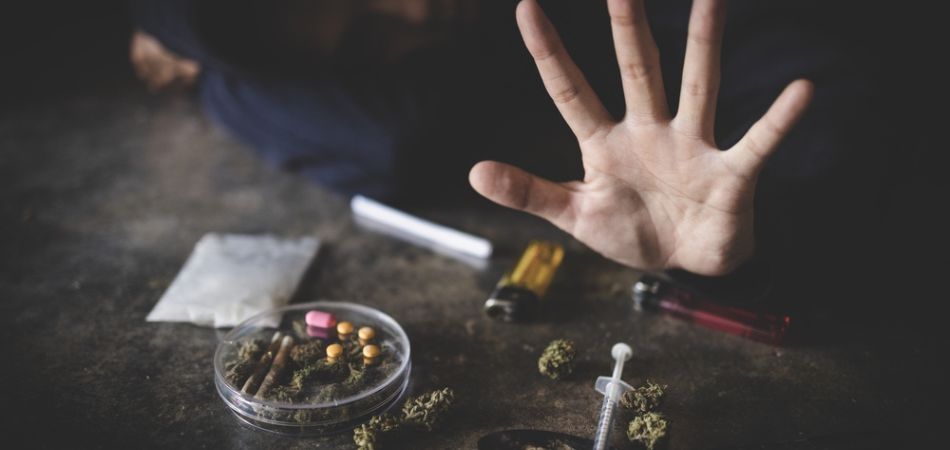Last Updated:
August 20th, 2025
Addiction is rarely a battle against one single enemy. Most people struggling with substance abuse also face mental health challenges that can slip silently under a person’s radar. The co-occurrence of a drug addiction and a mental health condition is where we find the destructive nature of comorbidity.
If you’re struggling with depression, anxiety, or another mental health condition alongside addiction, know that help is out there and you do not need to suffer in silence.
What does “comorbidity” mean in addiction?
In addiction treatment, comorbidity refers to the presence of both a substance use disorder (SUD) and one or more mental health conditions in the same person. Addiction recovery experts and behavioural psychologists understand how one disorder can, and usually will, overlap with the other, in very dangerous ways. One disorder’s symptoms can interact and intensify the other, making both diagnosis and treatment inherently more complex.
As a brief example, a person with a depressive disorder may turn to alcohol to cope, only for alcohol’s effects to deepen their depression. Here we see the vicious cycle in effect, where a person with comorbidity quickly becomes entangled in a web that feels impossible to escape.
Treating one issue in isolation is rarely effective when comorbidity is present. That’s why it becomes essential to understand the unique ways two disorders can work together.
Common mental health conditions linked with substance use
A person having a co-occurring substance abuse problem and a mental health issue is more common than many of us may first think. According to the Journal of the American Medical Association, 50% of people with severe mental disorders are affected by substance abuse.
Some of the most common mental health conditions that co-occur with an SUD include:
- Depression: Pervasive feelings of hopelessness, low energy and lack of motivation will drive people to self-medicate with drugs or alcohol. The relationship between addiction and depression is particularly dangerous, as one often deepens the impact of the other, trapping a person in a downward spiral that becomes harder to break over time.
- Anxiety: Many people struggling with chronic worry and panic attacks seek solace in substances like alcohol, cannabis, or benzodiazepines. They may temporarily soothe nerves, but over time, they often worsen the person’s mental health.
- PTSD and trauma-related conditions: A person’s past trauma, or adverse childhood experiences (ACEs), are often a tragic driver of repeated substance abuse. A person may turn to substances to escape recurring nightmares or flashbacks of trauma.
- Bipolar disorder and other mood disorders: In addition to the above-listed conditions, a broad spectrum of mood disorders can cause instability, especially in manic or depressive episodes, driving further substance abuse.
What keeps substance abuse and mental health issues so tightly linked?
The connection between addiction and mental health is not coincidental. The two can develop side by side, influence one another, or one can instigate risk factors for the development of a second disorder.
There are many influencing forces and factors that can keep comorbidity almost inextricably linked. These can include:
- Self-medication as relief: Many people seek substances as a way to ease emotional pain or to escape symptoms of anxiety, depression and trauma. Yet there is a reason that experts advise against the temporary relief of substance use, as it rarely solves a problem over the long term, instead leading to dependency.
- Neurological overlap: Mental health conditions and addiction both affect similar areas of the brain, including those involved in reward, motivation, impulse control and emotion regulation. Once systems are dysregulated, it becomes harder to distinguish where one condition ends and another begins.
- Social and environmental stress: More broadly speaking, a myriad of external influences can contribute to the development of both SUDs and mental health disorders. These can include unstable housing, unemployment, high crime, or poor social support.
How can I recognise when both issues are present?
In the same way that professionals can struggle to distinguish characteristics of only one condition, it can also be difficult to recognise them in oneself. A tangled set of overlapping symptoms may feel like finding two needles in a haystack, but there may be signs to watch out for, including:
Emotional and behavioural warning signs
If you or someone you know is experiencing both a mental health issue and a substance use disorder, you may notice:
- Rapid mood swings, irritability and emotional outbursts
- Inexplicable sadness, anxiety and emotional numbness
- Secretive behaviour or sudden withdrawal from loved ones
- Unexplained shifts in motivation, energy and self-care
- Difficulty keeping up with responsibilities at work or home
When one condition masks the other
It can be hard to recognise definitive lines between two conditions as comorbidity can mean one SUD or mental health issue masks the symptoms of another. As an example, a person struggling with depression may appear to be suffering from addiction alone, especially if they’re using a substance to self-medicate. Likewise, behaviours developed from prolonged substance use, like isolation and hopelessness, can closely resemble symptoms of poor mental health. The mirroring effect may lead to misdiagnosis or incomplete treatment, where only one issue is addressed while the other lies veiled in darkness.
Other signs to watch for
In addition, there are other broad, behavioural signs to watch out for, that will generally be found after a long period of no support. These include:
- A pattern of repeated relapses after short-lived recovery
- Resistance to treatment that only targets one issue
- A feeling that something deeper is being overlooked, even if the addiction is being addressed
Signs of comorbidity can be very elusive, as the boundaries between the two conditions continue to blur. It will often take the keen eye of an expert or professional to recognise when both dark forces are at play.
How dual diagnosis treatment helps
After shedding light on the complexities and dangers of comorbidity in substance addiction, it’s important to consider the treatment needed. Dual diagnosis treatment is specifically designed to address both mental health conditions and substance use disorders at the same time. The development of “integrated treatment” has thankfully put addiction treatment providers on much better footing, as well as the person suffering from comorbidity.
With dual diagnosis support, a person receives a level of care that addresses the root of both issues. Psychological therapies (like CBT or DBT) are used alongside medically-assisted addiction treatment throughout rehab. This care stabilises mental health symptoms while supporting addiction recovery, rather than prioritising one over another.
This kind of treatment will help you develop healthier coping strategies for both conditions. You will learn to reframe the conditions and understand how mental health impacts substance use (and vice versa). Dual diagnosis through a professional addiction treatment provider means you’re better equipped to maintain long-term recovery and step into the kind of future you want, free from the shackles of addiction and mental health struggles.
Where can I get support for comorbid addiction?
When substance use and mental health conditions overlap, the journey to recovery can feel like you’re stranded at sea, fighting to survive a tempestuous storm. Trying to break away from one condition can lull someone into a false sense of security, as the other condition exerts stronger force.
At Banbury Lodge, we offer dedicated dual diagnosis treatment that recognises how tightly addiction and mental health are intertwined. Our approach treats both together, giving you the tools to stabilise your emotional well-being while addressing the root causes of substance abuse. Our detox and therapy programmes lead into relapse prevention and comprehensive aftercare, so you stay on the path to a more balanced, substance-free life.
If you’re ready to take that first step, Banbury Lodge is ready to walk it with you. The support you need and deserve is only one phone call away.
(Click here to see works cited)
- “Depressive Disorder (Depression).” World Health Organization, World Health Organization, www.who.int/news-room/fact-sheets/detail/depression
- “Substance Use Disorders.” American Medical Association, www.ama-assn.org/topics/substance-use-disorders
- Webster EM. The Impact of Adverse Childhood Experiences on Health and Development in Young Children. Glob Pediatr Health. 2022 Feb 26;9:2333794X221078708. doi: 10.1177/2333794X221078708. PMID: 35237713; PMCID: PMC8882933
- Gordon, Sherri. “Co-Occurring Disorders: Mental Health Issues & Addiction.” Verywell Mind, Verywell Mind, 16 July 2021, www.verywellmind.com/co-occurring-disorders-mental-health-and-addiction-4158280
- Kelly TM, Daley DC. Integrated treatment of substance use and psychiatric disorders. Soc Work Public Health. 2013;28(3-4):388-406. doi: 10.1080/19371918.2013.774673. PMID: 23731427; PMCID: PMC3753025.





